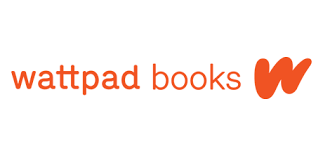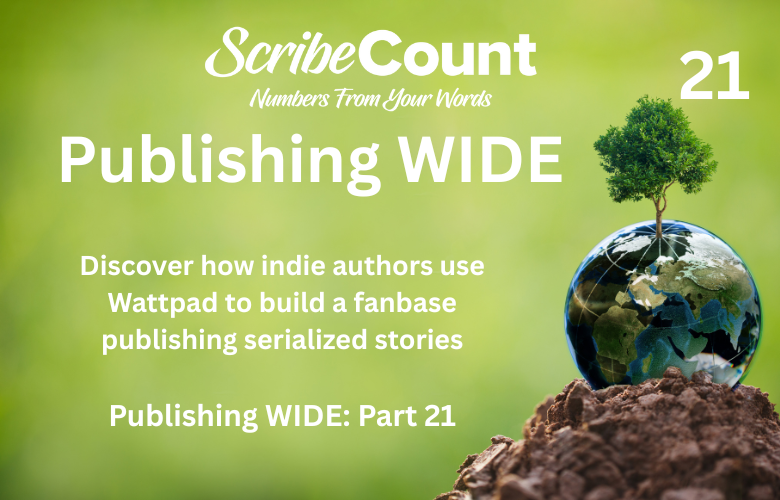Wattpad for Indie Authors
Wattpad stands as a unique publishing platform focused on serialized fiction, community engagement, and organic story discovery. With over 94 million users and a mobile-first approach, it offers indie authors a direct connection to an eager and often younger audience. What sets Wattpad apart from traditional self-publishing platforms is its emphasis on ongoing story development, reader interaction, and social storytelling. Instead of waiting for a book’s final form, readers follow along chapter by chapter, often influencing the story’s trajectory in real time.
For authors writing in popular genres like romance, young adult, fantasy, fanfiction, and LGBTQ+ fiction, Wattpad represents not just a place to publish but a strategic entry point into wider opportunities, including paid programs, print publication through Wattpad Books, and media adaptation deals via Wattpad Studios.
Platform History
Launched in 2006 by Allen Lau and Ivan Yuen, Wattpad began as a mobile reading platform. It quickly captured the attention of young, digital-native readers and writers, becoming a haven for serialized fiction and fan-driven storytelling. Over time, Wattpad evolved into a storytelling ecosystem, offering tools for publishing, commenting, and community building. Its most transformative step came in 2021, when it was acquired by South Korea’s Naver Corporation and merged with Webtoon—a move that greatly expanded its transmedia ambitions.
Today, Wattpad is more than just a writing site. It’s a discovery engine, testing ground, and launchpad for authors, particularly those looking to grow organically and reach global audiences.

How Wattpad Fits in a WIDE Strategy
While Wattpad doesn’t function as a traditional book retailer, it fits neatly into a wide publishing strategy as a top-of-funnel platform. Authors use it to gain early traction with readers, gather feedback, and build a fanbase that can eventually migrate to paid platforms like Amazon KDP, Kobo Writing Life, or Apple Books.
Its serial nature allows authors to:
-
Build anticipation by releasing stories one chapter at a time.
-
Gather feedback and revise content before publishing a final version.
-
Cross-promote with mailing lists, social media, or Patreon.
Wattpad isn’t a sales engine in itself for most authors, but it remains one of the most effective ways to cultivate loyal readers before launch.
What Wattpad Offers Indie Authors
Authors on Wattpad can publish stories directly to the platform and reach an immediate audience. The platform allows tagging by genre and theme, increasing discoverability. Wattpad’s inline commenting system gives readers the ability to respond to specific lines or scenes, generating rich engagement.
For select authors, Wattpad offers monetization paths:
-
Wattpad Paid Stories, a program allowing readers to purchase access to premium content using Wattpad Coins.
-
Wattpad Books, an imprint that selects top-performing stories for traditional-style publication.
-
Wattpad Studios, which partners with production companies to adapt popular stories into TV, film, or web series.
Getting selected for these programs requires strong reader engagement, frequent updates, and active participation—but success stories abound.
Wattpad Terms, Royalty Structure, and Payment Model
Publishing on Wattpad is free. Most stories are available to read at no cost, but monetized stories—offered through Wattpad’s invitation-only Paid Stories program—allow authors to earn income. Readers use Wattpad Coins (purchased with real money) to unlock chapters, and authors earn a share of this revenue.
Payouts are processed via PayPal and subject to a minimum earnings threshold. Authors retain rights to their stories unless they enter into a publishing or adaptation deal through Wattpad Books or Studios. If selected for these programs, authors receive contracts outlining royalties and rights arrangements.
Comparison to Other Platforms
| Platform | Distribution Model | Monetization Type | Community Features | Best Fit For |
|---|---|---|---|---|
| Wattpad | Serialized, community | Coins, book deals, options | Strong (comments, votes) | Building fanbases, testing early drafts |
| Amazon KDP | Retail | Royalties | Minimal | Ebooks and print sales |
| Radish | App-based serialization | Microtransactions | Moderate | Serialized, monetized genre fiction |
| DriveThru Fiction | Niche storefront | Royalties | Low | Genre-specific fiction sales |
| Apple Books | Retail | Royalties | Low | High-quality retail distribution |
Marketing on Wattpad
Marketing on Wattpad is driven more by community algorithms than paid ads. To succeed on the platform, authors must publish consistently, tag strategically, and engage with readers. Discoverability is tied to:
-
Story tags and genres, which feed into trending pages.
-
Reader votes and reads, which boost a story’s position in search.
-
Inline comments, which deepen engagement and boost retention.
Wattpad also offers themed contests, curated editor’s picks, and promotion of Wattpad Paid Stories through featured lists. These in-house promotions can result in tens of thousands of reads without any advertising spend.
While you can’t buy ad placement, your content becomes your marketing. The more chapters you publish and the more readers you engage, the more visibility you gain.
Pros and Cons of Wattpad
Pros:
-
Free to use with a global audience.
-
Excellent for building a fanbase.
-
Strong community and engagement tools.
-
Opportunities for monetization and media options.
Cons:
-
Monetization not guaranteed.
-
Requires frequent updates to remain visible.
-
Not ideal for all genres (e.g., nonfiction, literary).
-
Time-consuming without immediate financial return.
ScribeCount Integration
Currently, ScribeCount does not support direct Wattpad tracking, as Wattpad does not offer royalty reports unless enrolled in paid programs. However, if your story is later published via Wattpad Books and distributed to retail platforms like Amazon, Apple Books, or Barnes & Noble, ScribeCount will track those retail sales seamlessly across platforms.
Conclusion
Wattpad is a powerful tool for indie authors who understand the long game of publishing—where audience-building precedes monetization. It’s not a direct sales channel for everyone, but it remains one of the most effective tools for building global visibility, reader loyalty, and platform presence. If you’re writing the right kind of story and willing to commit to the platform, Wattpad can serve as the catalyst for a truly wide and multimedia career.
